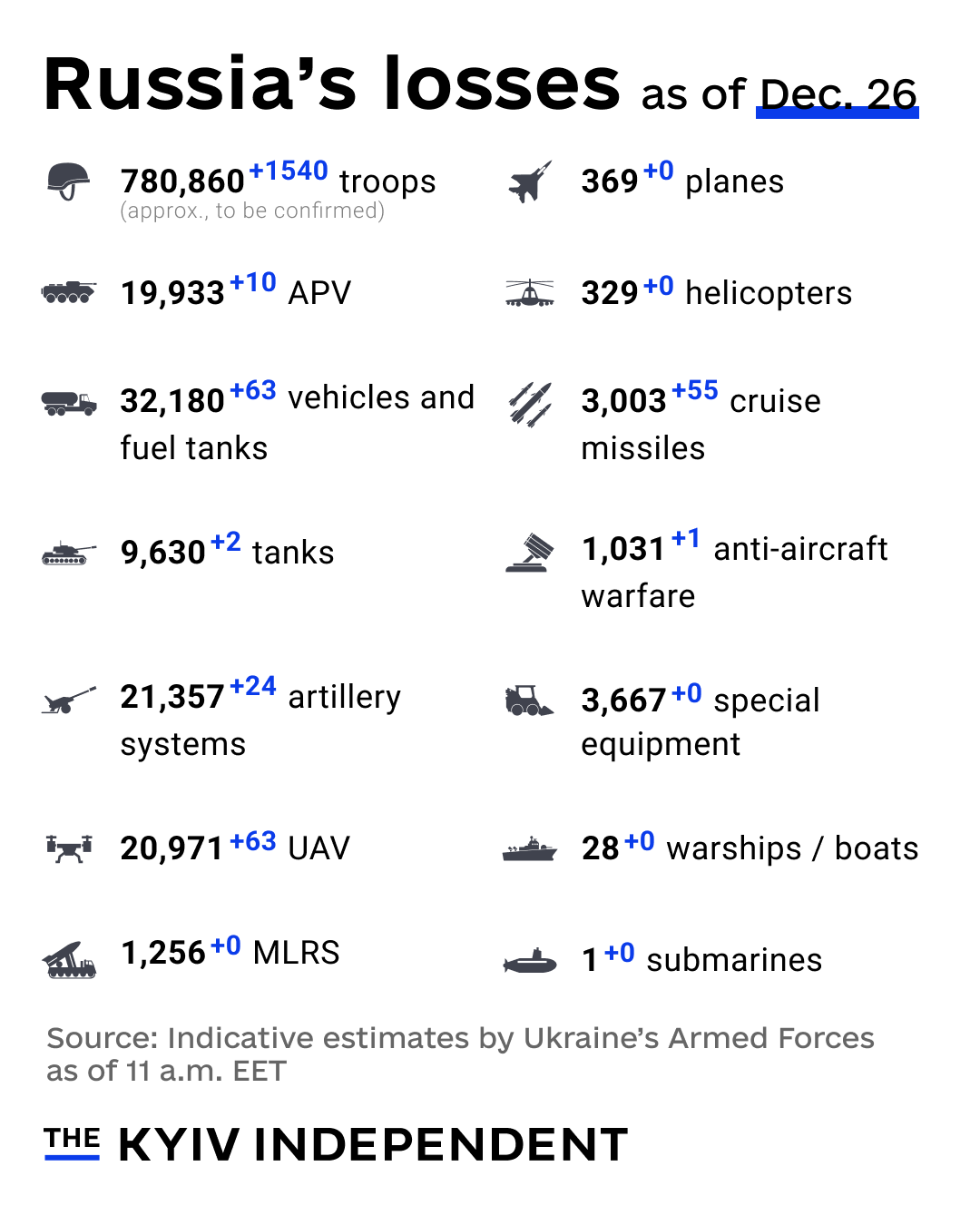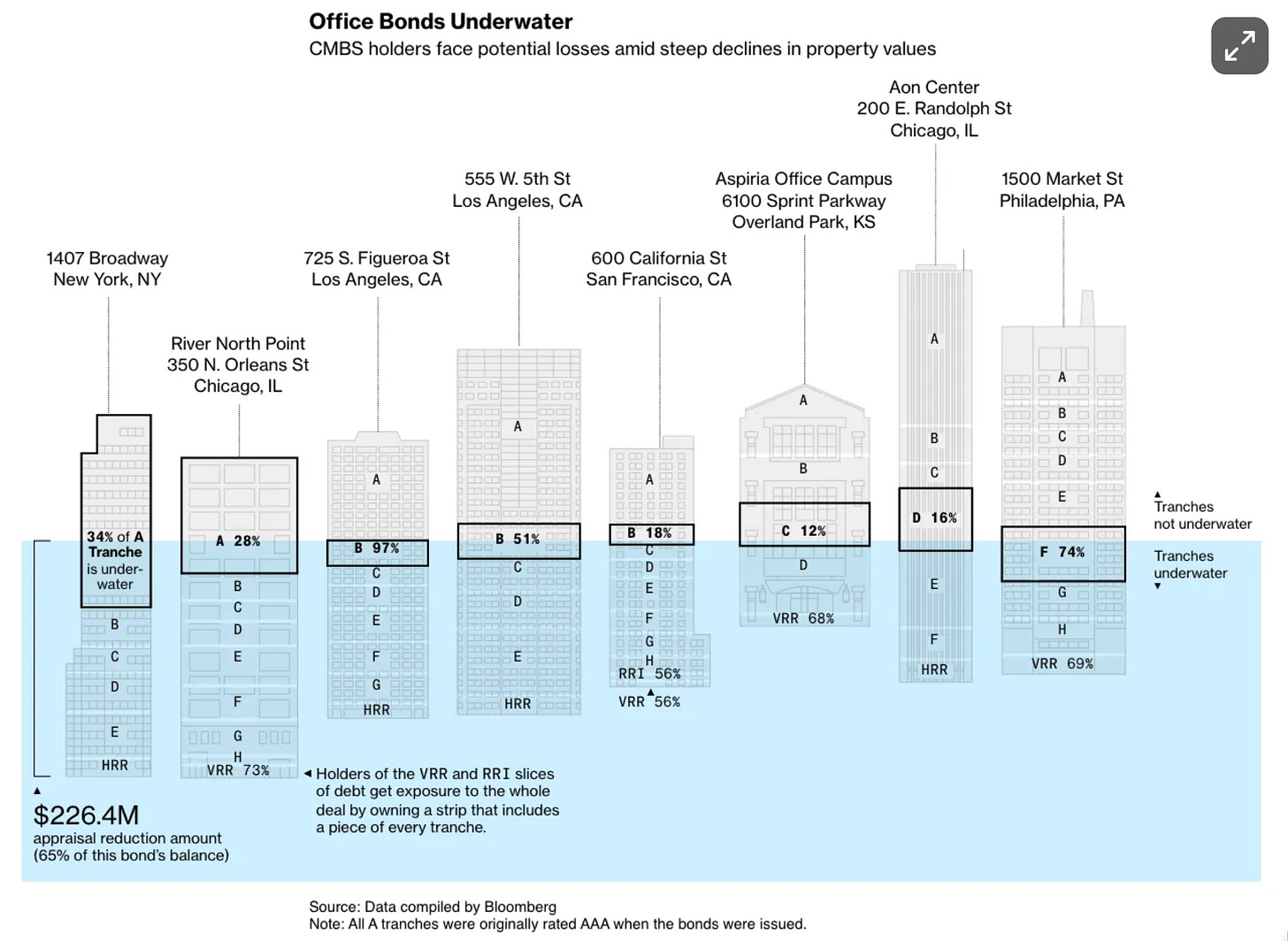BIWEEKLY BRIEFLY NOTED: For 2024-12-28 Sa
My biweekly read-around…
ONE IMAGE: A Very Good Question:
The ongoing shift of America from a place where the laws are bright lines to one in which some Justice Department can probably find some failure to report that turns out to be a felony… that is a bad trend, as it makes prosecution and control a matter of administrative discretion. The end is a thoroughly corrupt system…
ANOTHER IMAGE: Can These Horrendous Losses Be at All in the Ballpark?:
There were only 48 million males 18-65 in Russia when this started back in early 2022…
YET A THIRD IMAGE: Extend-&-Pretend Still Ruling in US Urban-Core Real Estate:
ONE VIDEO: Paris 1910 Upscaled:
MAMLMs being useful…
ANOTHER VIDEO: What ASML Says That It Does:
<https://www.asml.com/en/products/computational-lithography>
A THIRD VIDEO: William Dafoe in the “Nosferatu” ReMake:
YET A FOURTH VIDEO: “Magnetic” Forces as Electric Forces Generated by Lorentz Contractions:
Thinking about the fact that no particle ever feels any “magnetic” force in its own frame of reference; seeing a current deflect a magnetic needle as a very visible low-velocity example of relativistic length-contraction.
Very Briefly Noted:
I appear to have made up a fake quote from 1971 “Shaft”: “When The Man wants you down, you go down…” <delong.typepad.com/sdj/…>
Anybody have any idea what I might have been thinking of?…<https://substack.com/@delongonsubstack/note/c-83367010>
Public Reason: It’s not Mark Zuckerburg’s “where are my legs!?” metaverse. It’s not the CyberVerse of “Burning Chrome”. What is it instead?:
Om Malik: Will A.I. Eat the Browser?: ‘I’m addicted to Apple’s Vision Pro…. a nearly perfect entertainment device…. In a world where AR, VR, and voice-controlled systems are becoming more integrated into daily life, the browser’s limitations become glaringly obvious…. Over the next decade the browser will need to adapt or die…. [Hitherto] humans have had to adapt to… a document-centric web experience… rather than technology truly adapting to human needs…. Josh Miller… of <thebrowser.company/?utm…… wants… rather than having applications dictate how we interact with information, our usage patterns and preferences will shape how information and services are presented to us…<crazystupidtech.com/arc…>
The key problem in creating any information system is how to create and maintain a web of reliability and trust, so that what propagates is useful, important and relevant information rather than deceptive and damaging misinformation. That means that highlighting the answers to the “what are your sources?” and “what are your analytical protocols?” questions are absolutely key to every bundled-up piece of informational content. And that means that to the extent that MAMLMs are placed between you and the real sources and tuned and trained by professionals to tell you what you want to hear, the situation becomes increasingly fraught.MOAR:
Om Malik: Musings on Media in the Age of AI: ‘The internet was originally envisioned as a place for connection, collaboration, and discovery. But over time, it has been distorted by business models that prioritize engagement metrics over meaningful interaction. Discovery has long been the open web’s greatest challenge, with search engines turning it into an SEO game and social platforms creating algorithmic echo chambers. AI platforms are making discovery almost irrelevant. You stay still, but your AI agent goes out and fetches, distills, and synthesizes the content and renders it in whatever format you want — audio, video, or text. This is the future. None of the media business models will work in the future — neither advertising nor paywalls. Today’s content deals, like the one The Atlantic signed with OpenAI, are akin to the sugar high you get from soda. The sugar high is followed by the inevitable crash… <om.co/2024/12/21/dark-m…>
And:
Om Malik: Perception Is Reality: ‘I’ve learned the hard way that these days, everything read on the internet must be thoroughly fact-checked to separate reality from engagement bait…. The Greeks used games, theater, assemblies, law courts, and religious festivals to shape attitudes and opinions. During the Spanish Armada era, the Spanish employed pamphlets and letters to spread false or counter-narratives…. The golden age of propaganda dawned in 1914 with World War I, and the term soon became part of everyday language. Since then, propaganda has evolved alongside changing communication technologies. Pamphlets, newsletters, and newspapers were quickly supplemented by radio and television, and later by the internet. We’ve indeed come a long way…. crazystupidtech.com/arc…. It comes as no surprise that we’ve seen propaganda move to AI and chatbots… a battleground for control over historical narratives and information flows… <om.co/2024/12/25/percep…>
====
References:Malik, Om. 2024. “Musings on Media in the Age of AI.” om.co/2024/12/21/dark-m…, December 21, 2024. URL: om.co/2024/12/21/dark-m…
Malik, Om. 2024. “Perception Is Reality.” om.co/2024/12/21/dark-m…, December 25, 2024. URL: om.co/2024/12/21/dark-m…
Malik, Om. 2024. “Will A.I. Eat the Browser?” Crazy Stupid Tech. URL: crazystupidtech.com/arc….
Vinge, Vernor. 1981. True Names. New York: Dell Publishing. URL: archive.org/details/tru….<https://substack.com/@delongonsubstack/note/c-83274140>
This Is Fine!: In this enormous dumpster fire, you can take some satisfaction in one thing. No matter how badly you do your job, you still are much more effective and successful and competent than Merrick Garland:
Duncan Black: …The Institutionalists!: ‘I will let people better equipped to interpret such things provide a fuller interpretation, but if you read the Gaetz Report <ethics.house.gov/wp-con…> starting at page 3 (as numbered) at Procedural History, it is the kind of Calvinball shit you would expect from the Trump DOJ.
But it was Garland:
“Shortly after DOJ withdrew its deferral request and the Committee reauthorized its review, the Committee sent DOJ a request for information…. Without a response despite repeated follow up, the Committee submitted FOIA requests… which to date have not been adequately processed. The Committee continued to reach out…. On January 12, 2024, the Committee received its first correspondence from DOJ on the matter. At that time, DOJ provided no substantive response or explanation for its delay; instead, DOJ simply stated that it “do[es] not provide non-public information about law enforcement investigations that do not result in charges.” This “policy” is, however, inconsistent with DOJ’s historical conduct with respect to the Committee…. DOJ did not comply with the subpoena by the date required, but suggested it remained “committed to good-faith engagement with the Committee…. To date, DOJ has provided no meaningful evidence or information to the Committee or cited any lawful basis for its responses…. The Committee and DOJ should be partners in their shared mission of upholding the integrity of our government institutions…” <eschatonblog.com/2024/1…><https://substack.com/@delongonsubstack/note/c-83267636>War & Rumours of War: Matthew Yglesias is 100% correct here. And I would put it much more strongly. It is not “[un]clear… that Hooker needed to withdraw and abandon the offensive”. It is, rather, clear that Hooker had every reason to continue the offensive. At the very least it would attrit Lee, and it might have led to his defeat in detail:
Matthew Yglesias: : ‘Robert E Lee’s hype as a military genius has… its] foundation in reality… from his success at Chancellorsville…. 60,000 men faced down the 108,000-strong Army of the Potomac… with an additional force of 28,000 more… at Fredericksburg under… Sedgwick. Lee won decisively… with some very unusual tactics — dividing his force twice in the face of a numerically superior opponent…. Admirers call this “Lee’s perfect battle,” and certainly it’s hard to argue with success. But it’s also hard not to look at it as involving a series of significant errors by Union general Joseph Hooker…. Even with all the blunders, it’s not actually clear to me that Hooker needed to withdraw and abandon the offensive. The Union lost more men, but the Confederacy lost a larger proportion of their army… <slowboring.com/p/matts-…>
The Union army suffered 17,000 casualties at Chancellorsville; the Confederates 13,000—15% of those engaged in total. Compare to 25% at Antietam in 1862, 31% at Gettysburg in 1863, and 28% at the Wilderness and Spotsylvania in 1864. In my view, it is very clear that Hooker did not need to withdraw, and that he did withdraw because he massively overestimated the size of the Confederate army—they had, after all, attacked him from pretty much every possible direction except from due north. Both the Seven Days’ Battles and Chancellorsville were victories won not on the ground, where things were inconclusive, but in the mind of the Union commander.And I do think Matt gets one thing wrong here: the real foundation for Lee’s military genius is Second Bull Run, and Longstreet’s flank attack there. That was the battle where Lee won a major victory on the ground, and not in the mind of the Union commander…<https://substack.com/@delongonsubstack/note/c-83265468>
Live from the Chaos-Monkey Cage: Instead of conquest, the role of foreign-policy statecraft in producing a prosperous polity is in shaping world market conditions so that one’s imports and exports are carried out at attractive terms of trade. The role of foreign-policy economic statecraft in providing for security lies in using threats to adversely change others’ terms of trade to guide their behavior—“sanctions policy”. There is no chance the forthcoming Trump administration will understand that this is the point, or how to do this. Here Paul Krugman recommends Henry Farrell on the foreign-policy configurations we are likely to see under Trump II: Reign of the Neofascist Chaos Monkeys:
Henry Farrell: ‘Internal battles…. Traditional national security hawks will want to double down on sanctions and export controls, without any clear sense of where to stop. Fans of tariffs—a group that currently includes Trump—will apply them to remedy economic insecurity and all else that ails the United States. They will eventually discover the limits and costs of tariffs, but probably not soon enough. Well-connected firms will call for more traditional, business-friendly measures, combined with sweetheart deals and carve-outs…. Fraught alliances, palace politics, knifings in the dark, and Trump’s whims will send economic security policy reeling. The one area in which Trump shows unwavering determination is his enmity toward technical expertise… hinder[ing] the ability of the economic security state to get things done…. Everyone—businesses, allied governments, and adversaries—will be trying to figure out what is happening within a chaotic administration, and, if possible, to shape it…. Once, and not too long ago, it was possible for U.S. elites to believe that technocrats could order the world… making it secure and predictable for them…. The sun is setting on the sanctions technocrats, and indeed on traditional technocracy more generally… <foreignaffairs.com/revi…>… <https://substack.com/@delongonsubstack/note/c-83136262>Live from the Chaos-Monkey Cage: Donald Trump’s “Merry Christmas” message claimed, falsely, that Chinese soldiers operate the Panama Canal, and that we should conquer it—along with absorbing Canada & Greenland. Because conquering places and extracting resources from them is how you grow rich. But that has been wrong since at least 1776. Since then, it is increasingly cheaper and more efficient to make something & trade for it than to try to conquer some place and then extract resources from it. Paul Krugman Giveth the Lesson:
Major takeaways from Paul:
May I say that Trump is still benefiting, maybe more than ever, from media sanewashing? How many Americans, even those who pay attention to the news, know that THIS was the president-elect’s Christmas message?…
And:
Norman Angell’s book… made two main points…. In a world economy with substantial trade… affluence… [has been attained by] small European nations…. An advanced nation can’t extract enough tribute from its vassals to make a significant difference to its overall wealth…
And:
The Axis powers [of WWII} believed that their nations needed empires to thrive…. [But afterwards] the war’s losers did just fine without… empires…. Germany had its Wirtschaftswunder. Japanese economic growth astonished the world for 40 years. Italy… by 1970… GDP per capita was triple its level in 1938… <https://substack.com/@delongonsubstack/note/c-83135352>
SubStack Posts:
A nice summary of how Berkeley, CA, is no longer a NIMBY-dominated inner suburb. There are only two things I think it downplays—Darrell Owens, of course, knows these two things well, but has other fish to fry and so weights them as of much less importance than I do. The first is the geographic split: the northeast Berkeley Hills of those who own single-family homes in the Hills now worth multimillions who think everything is fine and that increasing density to their southwest will bring more Oakland Sideshow Chaos closer to them, vs. the southwest Berkeley Flats who by and large want an affordable city. The second is the generational split—people who once were hippies, or wish they once were hippies, and want to return to a laid-back 1970s vibe:
Donald Trump’s “Merry Christmas” message claimed, falsely, that Chinese soldiers operate the Panama Canal, and that we should conquer it—along with absorbing Canada & Greenland. Because conquering places and extracting resources from them is how you grow rich. But that has been wrong since at least 1776. Since then, it is increasingly cheaper and more efficient to make something & trade for it than to try to conquer some place and then extract resources from it. Paul Krugman Giveth the Lesson:
If reading this gets you Value Above Replacement, then become a free subscriber to this newsletter. And forward it! And if your VAR from this newsletter is in the three digits or more each year, please become a paid subscriber! I am trying to make you readers—and myself—smarter. Please tell me if I succeed, or how I fail…




